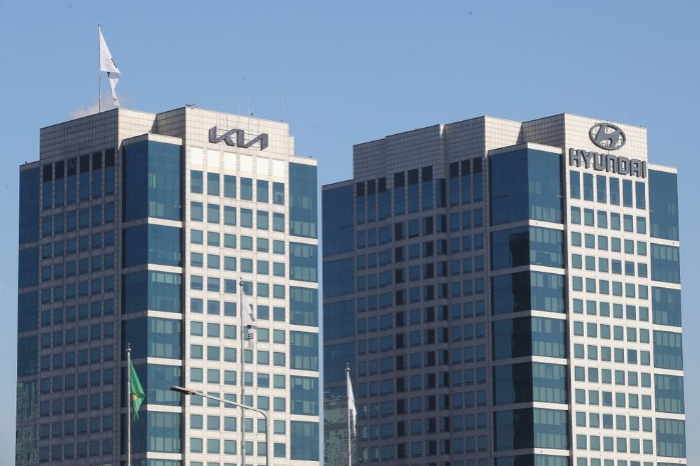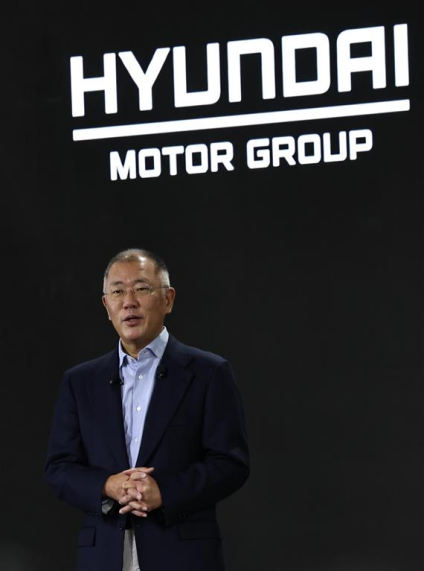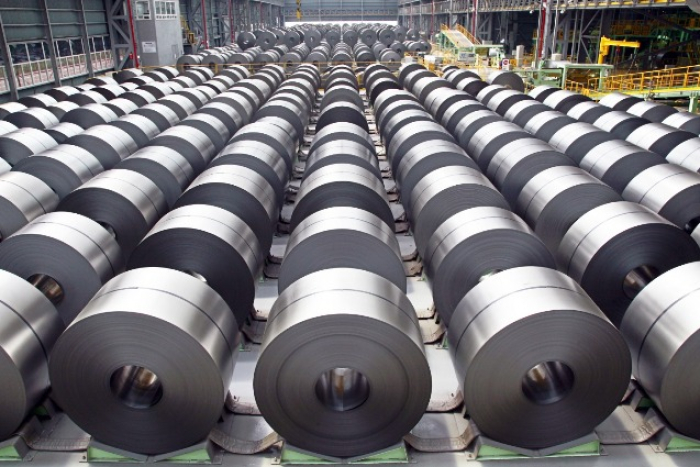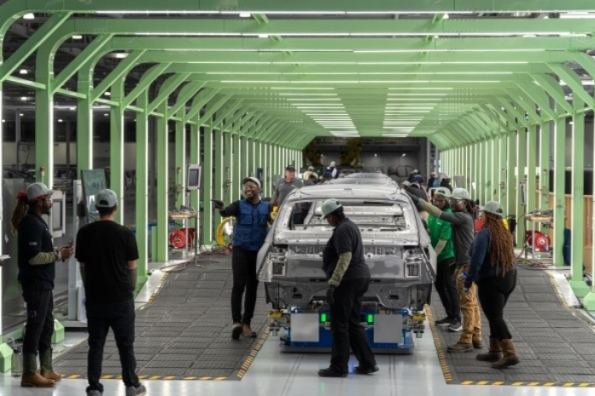Hyundai Motor to invest $21 billion in US amid tariff concerns
This would double the South Korean auto group’s total US investment since its inroads into the market in 1986
By Mar 25, 2025 (Gmt+09:00)
K-beauty shake-up: APR, Shinsegae rise as Aekyung declines


Koreans’ craving for luxury goods fades


Hyundai’s new American dream comes with new plant, more spending


Hyundai Steel picks Donaldsonville as $5.8 bn US plant site, seeks investors


Korean snacks mesmerize global consumers amid K-pop popularity



South Korean auto behemoth Hyundai Motor Group will invest $21 billion to expand its manufacturing in the US, which could provide Hyundai and its home country some immunity from reciprocal tariffs the US government plans to impose.
Hyundai Motor announced on Monday in Washington, D.C. that it will invest $9 billion through 2028 to ramp up the annual auto production capacity of Hyundai Motor Co., Kia Corp. and its luxury marque Genesis in the US to 1.2 million units.
It also vowed to invest nearly $6 billion to build its steel-making unit Hyundai Steel Co.'s first US steel mill in Louisiana, which will be an electric arc furnace mill with an annual steel production capacity of 2.7 million tons, and expand local auto component supply chains.
An additional $6 billion will be spent to reinforce the Korean auto group’s collaboration with US companies in autonomous driving, robotics, artificial intelligence, advanced air mobility and future energy, according to the company.
The announcement, which came as somewhat of a surprise, was made with Hyundai Motor Group Executive Chair Chung Euisun standing next to US President Donald Trump at a White House event on Monday, underscoring the Korean auto group’s drive to reduce the tariff burden threatened by the new Trump administration.

The auto group’s latest investment, which will be made from 2025 to 2028, will double its total US investment of $20.5 billion since its advance into the market in 1986, including a $10.5 billion investment promised during the previous Biden administration in 2022.
POSSIBLE TO AVOID HEAVY US TARIFFS?
Hyundai Motor and its sibling Kia sold more than 1.7 million units in the US together last year, of which 59.3% were shipped from its home Korea.
If the US government slaps 25% duties on imported cars to the US, the Korean auto group’s vehicles would likely lose their appeal to US consumers in terms of price.
Its steel-making firm Hyundai Steel is also about to take a hit from 25% US tariffs reimposed on all foreign steel and aluminum products.
The Korean auto group’s investment in its first US steel mill is expected to help lower the US tariff burden on its automaking and steelmaking companies.

Hyundai Steel, controlled by Hyundai Motor Group, mainly provides its steel plates to its auto-manufacturing siblings Hyundai Motor and Kia.
The steelmaker also plans to deliver its steel sheets from the US mill to Hyundai Motor Group’s EV-dedicated assembly lines, dubbed Hyundai Motor Group Metaplant America LLC (HMGMA), in Georgia, which is capable of producing 300,000 units annually, as well as to finished carmakers headquartered in the US.
In January, The Korea Economic Daily exclusively reported Hyundai Steel’s investment to build its first US plant in the US.
HMGMA, in which the Korean auto giant has invested $7.6 billion, will officially open on Wednesday, with a grand ceremony to be attended by Chairman Chung.
With the three manufacturing bases, Hyundai Motor Group can churn out 1,000,000 units in the US annually.
Hyundai Motor plans to produce its EVs – the IONIQ 5 and 9 – and hybrid models at HMGMA, Hyundai Motor President and Chief Executive Officer José Muñoz said during an annual shareholders’ meeting last week.

US AS HYUNDAI’S KEY MARKET
Of Hyundai Motor and Kia’s total global sales of about 7 million cars in 2024, 24.3% were sold in the US.
This is a major factor behind the Korean auto giant’s big bet on the US market.
Industry observers expect its latest investment could help not only Hyundai but also Korea avoid tariffs or at least be subject to lower duties than other countries.
Concerns have grown that Korea with a large trade surplus with the US would be included on the list of so-called “Dirty 15” nations that would face the US government’s country-specific reciprocal tariffs to be unveiled on April 2.
Expectations have grown that the US reciprocal tariffs would be targeted and sectoral, meaning that certain industries like auto and semiconductors may avoid them, according to some US media outlets including The Wall Street Journal.
Hyundai Motor and Kia shares ended up 3.3% and 2.1%, respectively, on Tuesday, outperforming the broad Kospi market with a 0.6% fall. Hyundai Steel shares, however, lost nearly 7%.
Write to Jung-Eun Shin and Bo-Hyung Kim at newyearis@hankyung.com
Sookyung Seo edited this article.
-
 Business & PoliticsKorea sees record February auto exports before looming Trump tariffs
Business & PoliticsKorea sees record February auto exports before looming Trump tariffsMar 18, 2025 (Gmt+09:00)
2 Min read -
 SteelHyundai mulls building 1st overseas steel mill in Louisiana
SteelHyundai mulls building 1st overseas steel mill in LouisianaJan 07, 2025 (Gmt+09:00)
3 Min read -
 Electric vehiclesHyundai to invest $10.5 bn in US EV, future mobility sectors
Electric vehiclesHyundai to invest $10.5 bn in US EV, future mobility sectorsMay 22, 2022 (Gmt+09:00)
5 Min read


